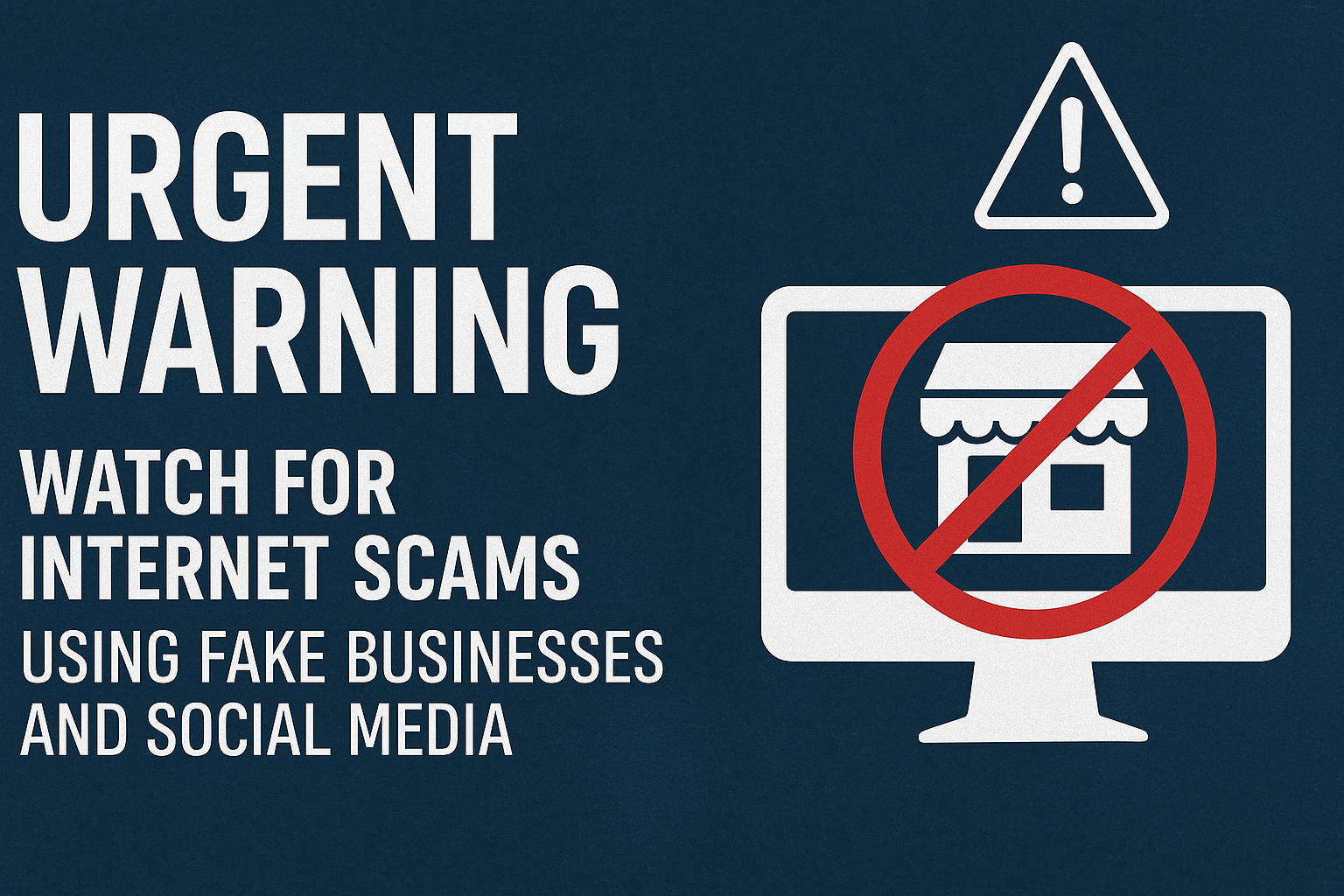Authorities urge public to beware of online scams involving fake businesses and fraudulent social media accounts.
Federal and state authorities are issuing an urgent warning to consumers as internet scams involving fake businesses selling cars and fraudulent social media profiles continue to surge across the United States.
Scammers are increasingly creating convincing fake car dealerships —often complete with polished websites, logos, and social media accounts—to lure in victims with fraudulent offers for products, services, or investments that do not exist. These schemes have become alarmingly sophisticated, with some even fabricating customer reviews, fake news coverage, and fake business licenses to appear legitimate.
“Criminals are using social media to build trust quickly and deceive unsuspecting consumers,” an internet security firm briefed us on early this month. “We’re seeing a rise in fake online shops, counterfeit investment firms, and phony car dealerships—all operating with stolen or fictitious identities.”
One of the most common tactics involves scammers impersonating well-known car dealers or creating entirely fictional businesses, then promoting them through targeted ads on platforms like Facebook, Instagram, and TikTok. Victims are often tricked into placing orders or providing personal and financial information, only to discover the business vanishes or never existed.

Officials advise internet users to remain vigilant and take the following precautions:
- Verify the legitimacy of businesses through Better Business Bureau listings, business license records, and official brand websites.
- Be skeptical of deals that seem too good to be true, especially on unfamiliar websites or new social media accounts.
- Never send payments or share sensitive information with unverified businesses.
- Report suspicious activity immediately to the FTC or local consumer protection agencies.
“If you're shopping online or considering any deal promoted through social media, take time to research,” a spokesperson added. “If something feels off, trust your instincts—scammers are banking on quick clicks and emotional decisions.”
As the digital marketplace grows, so do the risks. Consumers are urged to share this warning with friends and family to help stop the spread of online fraud.In today’s digital age, online car shopping is more convenient than ever. With a few clicks, buyers can browse thousands of vehicles, compare prices, and even arrange financing. But as the car buying process evolves, so do the scams. A growing number of online shoppers are falling victim to sophisticated fake dealership scams—a threat amplified by the rise of AI and social media marketing.
It All Starts With a Post
It often begins with an ad or a social media post that looks like it came from a well-known dealership. The branding is professional, the vehicle images are crisp, and the price seems almost too good to be true. That’s because it usually is.
These scammers spin up fake dealership pages, sometimes cloning real ones, and back them with convincing ad campaigns. In one recent case, a three-year-old Facebook page posed as a legitimate dealership, even featuring an AI-generated video promoting a special sale. The page was run out of Bangladesh and had lured multiple people into wiring money for cars that didn’t exist.
The Mechanics of the Scam
Once someone clicks on a fake ad, they’re typically directed to a fake dealership website. These websites look shockingly legitimate—complete with inventory listings, chat functions, and even fake reviews. Once engaged, scammers employ high-pressure tactics to close the deal fast: "This car is in high demand," they might say, or "We can only hold it for a few hours."
The buyer, thinking they’ve landed the deal of a lifetime, wires a deposit or the full amount, expecting the vehicle to arrive shortly. But after the money is sent, communication stops. The page may even disappear overnight.
Why These Scams Are Growing
The increasing accessibility of AI tools makes these scams easier to pull off and harder to detect. Scammers use deepfake videos to show dealership staff endorsing offers, AI chatbots to field questions convincingly, and voice cloning to follow up with phone calls.
These are not the poorly-written scam emails of the past. These are calculated, polished operations designed to erode trust in legitimate online auto sales.
How to Spot a Fake Dealership
Here are the red flags to watch for:
- Too-good-to-be-true pricing: If a listing is thousands below market value, tread carefully.
- Unverifiable contact details: Real dealerships have physical addresses, verifiable phone numbers, and emails linked to official domains.
- Unusual payment methods: Wiring money, using gift cards, or paying via apps you’ve never heard of is a major red flag.
- No track record: Google the business. Check for Google reviews, BBB accreditation, and Yelp presence. Scammers often use generic names and have no legitimate online footprint.
- No ability to verify inventory: Ask for a VIN and verify it through an independent service like Carfax or NICB.
What to Do If You’ve Been Targeted
If you think you've been scammed:
- Cease communication immediately with the suspected scammer.
- Report the social media page or website to the hosting platform.
- File complaints with the Federal Trade Commission (FTC) and the Internet Crime Complaint Center (IC3).
- Contact your financial institution to report the fraud and attempt to stop or recover the funds.
- Notify local authorities and provide as much documentation as possible.
The Scope of the Problem
According to the FBI’s Internet Crime Complaint Center, online auto sale scams led to over $54 million in losses last year alone. Experts anticipate this number will rise as scammers adopt more advanced AI tools, making it harder for even the most tech-savvy buyers to distinguish fake listings from real ones.
How to Shop Safely Online
Despite these threats, buying a car online can still be a safe and rewarding experience. Here’s how to protect yourself:
- Start with trusted platforms. Use well-known automotive marketplaces and stick with dealers that have a long-standing presence.
- Verify dealer information. Cross-reference phone numbers, addresses, and emails with official dealership websites.
- Avoid urgency. Real dealers won’t pressure you to act within hours or demand wire transfers.
- Insist on third-party verification. Ask for a VIN and run it through a trusted service.
- Pick up in person or use reputable transport services. If distance is an issue, work with logistics companies that partner with known dealerships.
The Bottom Line
Social media and AI have changed the way we shop for cars—but they’ve also changed the way criminals scam buyers. With polished websites, deepfake videos, and convincing ads, these fraudsters are more sophisticated than ever.
But being informed is the best defense. If a deal looks too good to be true, dig deeper. Trust your instincts, verify everything, and never let pressure override caution.
Buying a car online isn’t dangerous—but buying from the wrong source is. Stay alert, ask questions, and shop smart. That dream deal might just be real—as long as the dealership is too.




